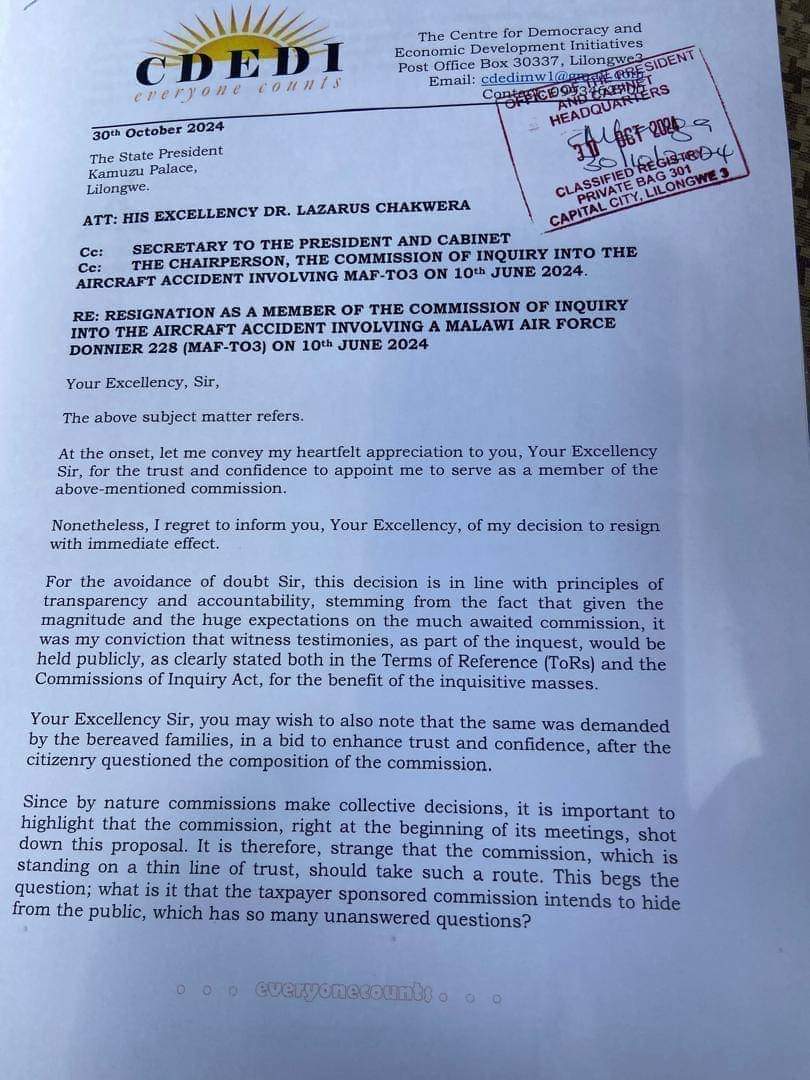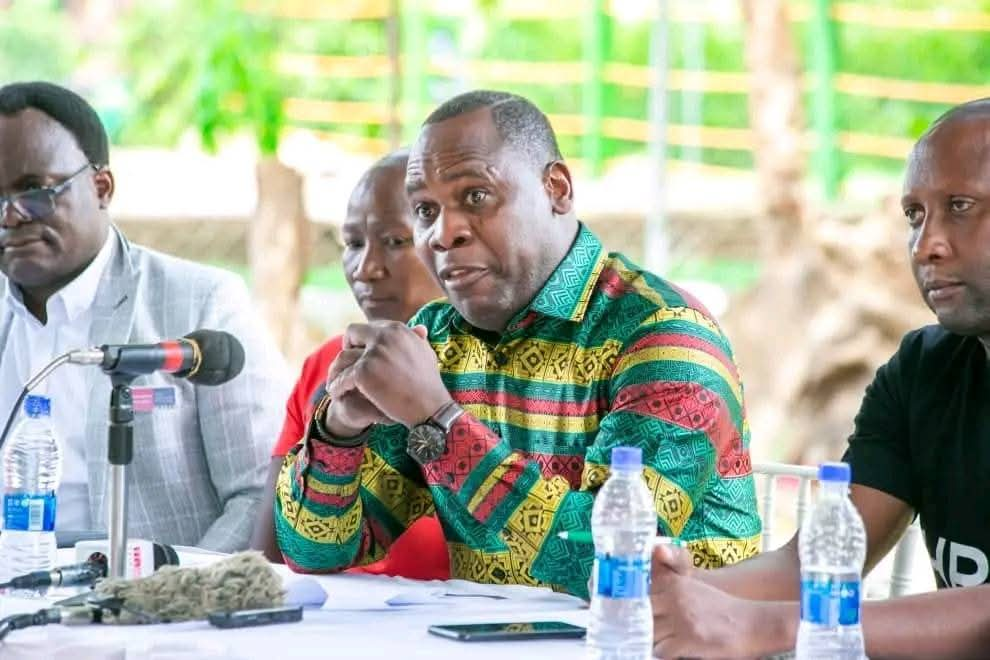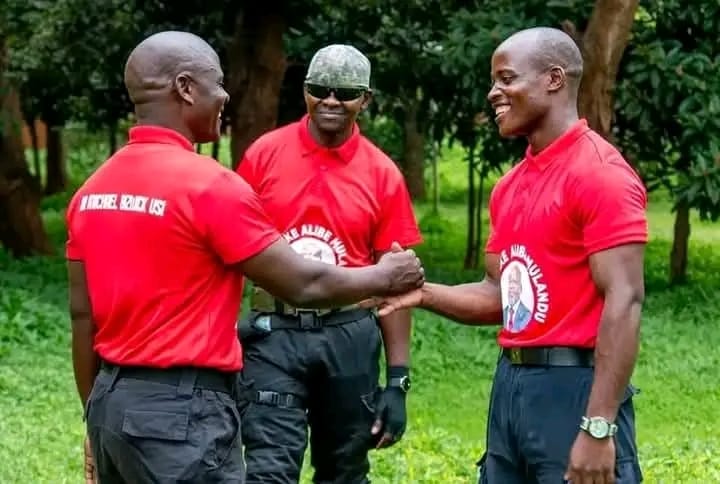By Burnett Munthali
The sudden resignation of Namiwa from the Chikangawa Plane Crash Inquiry, merely two days after taking an oath, has sent shockwaves through the public and raised serious questions about the integrity and future of the inquiry. Such an abrupt departure not only casts a shadow on the inquiry’s immediate proceedings but also invites scrutiny into the factors that led to this decision.
Namiwa’s resignation at this early stage can be seen as a significant setback for the inquiry, which was established to uncover the causes of a tragic plane crash and provide recommendations to improve aviation safety. The inquiry relies on the expertise and commitment of its members to conduct a thorough investigation, and any disruption can hinder the process and delay the delivery of justice to the victims’ families and the community at large.
The circumstances surrounding the resignation are particularly concerning. Without a clear explanation, speculation may arise regarding internal conflicts, political pressure, or personal reasons that may have influenced Namiwa’s decision. Such uncertainties can undermine public trust in the inquiry’s objectives and its capacity to operate independently.
- African Journalists Urged to Promote Gender in Climate Change Reporting
- Purezidenti Mutharika Adzatsegula Malangizo a Dziko mu State of the Nation Address
- President Mutharika to Outline Vision for Malawi in State of the Nation Address
- CDEDI Yachenjeza: Chigamulo cha Supreme Court pa Finance Bank Chitha Kuipitsa Chuma cha Malawi
- CDEDI Warns Supreme Court Ruling on Finance Bank Could Wreck Malawi’s Economy
The reaction from the community and various stakeholders has been one of disappointment and concern. Given the tragic nature of the incident, there is a heightened demand for accountability and transparency. Namiwa’s resignation may foster a perception of instability within the inquiry, leading to questions about the commitment of other members to see the investigation through to its conclusion.
Public confidence in the inquiry’s ability to address the key issues surrounding the crash could also be compromised. Community members, families of the victims, and aviation stakeholders expect a thorough investigation, and any disruptions could erode faith in the outcomes.
Moving forward, the remaining members of the inquiry will need to rally together to mitigate the impact of Namiwa’s resignation. They must demonstrate their resolve to carry out their duties with integrity and transparency. It will be crucial for the inquiry to fill the vacancy left by Namiwa swiftly, as a delay could prolong the investigation and deepen public frustration.
Moreover, the inquiry’s leadership should consider implementing measures to ensure the psychological and operational safety of its members. Establishing a supportive environment could help prevent further resignations and encourage open dialogue about challenges faced during the inquiry.
Namiwa’s resignation from the Chikangawa Plane Crash Inquiry is a development that warrants serious consideration and reflection. The circumstances leading to this decision must be understood to preserve the inquiry’s credibility and effectiveness. As the investigation continues, it is vital for the remaining members to remain steadfast and committed to delivering justice for those affected by the tragic crash, thereby restoring public confidence in the process. The inquiry stands at a critical juncture, and its ability to navigate this challenge will be paramount in determining its success in uncovering the truth behind the incident.




